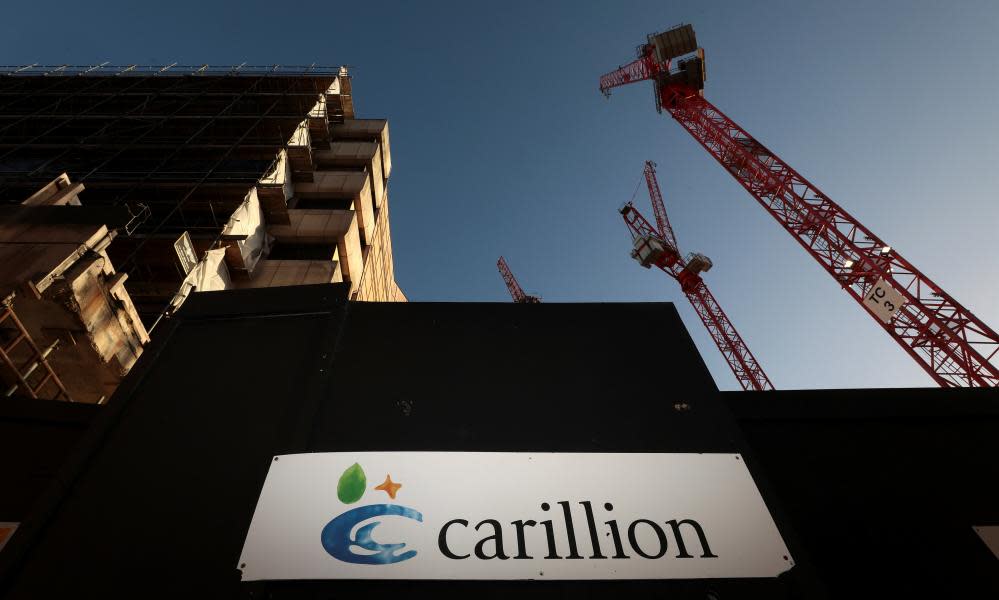The Guardian view on Carillion’s collapse: no hiding place

The smoke from Carillion’s billion-pound disaster is beginning to clear and the wounds are starting to hurt. Subcontractors do not know when they will be paid what they are owed or if they will be paid for work outstanding. As a result they are having to make people with mortgages and car loans redundant. Councils are making panicked arrangements to cover school dinners. Ministers are making urgent arrangements to replace a major defence contractor. Accident investigators are moving in. Yet it is clear enough what went wrong. The urgent matter now is to understand why it did, and act to stop it happening like this again.
The roots of the crisis in private finance projects lie in austerity. The dramatic fall in the number of public sector contracts after the coalition came to power in 2010 and abruptly slashed funding for schools and other public projects intensified competition between the major suppliers. Margins were cut, profits eroded, and the number, rather than the size, of contracts became the way of generating cash flow. No surprise then that when two of Carillion’s biggest building projects, the new hospitals in Liverpool and the West Midlands, hit problems, Carillion itself was in trouble. That may explain why ministers handed it a further £2bn of contracts after the first of three profit warnings last summer. Meanwhile Carillion’s bankers were getting nervous. Reports suggest that the state-owned RBS was the first creditor to say “no more”.
It is time to call an end to the age when a private contract is the default solution to every public project. It is time to rethink the role of public provision so that it looks more like the rest of Europe. If Labour is overambitious to think always of renationalisation, it is right to say that this must be a watershed.
A whole decade after the banking crisis was supposed to have marked the nadir of corporate greed, Carillion directors appear to have behaved as if it had never happened. These are the people who are responsible for managing risk. Yet they redrew the rules on bonuses so that they could not be clawed back except in the event of misconduct. That is a move that suggests they had at least some concerns about their company’s future. These are the people who decided to pay out £83m of dividend (which would likely influence bonuses), making this the 19th consecutive year of their “progressive dividend” policy, pursued as the pension fund deficit grew. This is conduct so startling that even the voice of business, the Institute of Directors, thinks it was “highly inappropriate”.
The business secretary, Greg Clark, wants the Insolvency Service to fast-track its investigations. It may be too late to get that cash back to bail out the pension fund, or to save some of the 20,000 jobs at risk, but it is not too late to rethink how public sector contracts are awarded, and what evidence is available to make a judgment about the viability of the company bidding. Now is the time, five years after the introduction of the Social Value Act, allowing social and environmental benefits to be part of the bid awarding process, for greater powers to award contracts on considerations other than the lowest bid. A simple balance-sheet test might be introduced. A Domesday Book of all outstanding contracts could bring some transparency, and help to monitor quality of previous performance.
On Tuesday the directors of Carillion disappeared from the company’s website. In the coming weeks, however, there should be nowhere for them to hide from public scrutiny.

 Yahoo News
Yahoo News 
